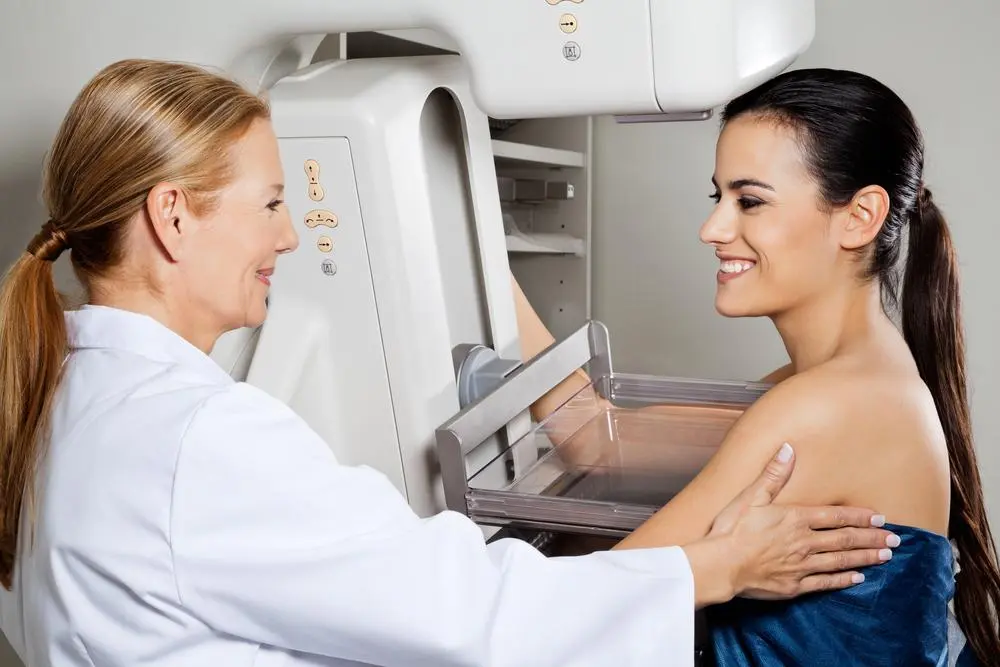Healthcare services for women are critical aspects of overall well-being dedicated to addressing their unique needs are essential. From gynaecological care to obstetrics and mammography, women’s healthcare requires specialized attention to maintain their health at every stage of life. In this essay, we will explore these essential services and highlight the importance of regular check-ups for women’s health.
What is Gynaecological Care: Essential for Women’s Health
Women’s health specialist focuses on the health of the female reproductive system, which includes the uterus, ovaries, and vagina. Regular gynaecological check-ups are vital for the early detection of conditions that may affect women’s reproductive health.
Routine Gynecological Exams:
These exams typically include a pelvic examination, a Pap smear (to screen for cervical cancer), and discussions about menstrual health. These appointments allow women’s health doctors to address any concerns and prevent potential health issues.
Sexual and Reproductive Health:
Gynecologists provide guidance on contraception, fertility treatments, and sexual health. They also offer advice on family planning and the management of conditions like polycystic ovarian syndrome (PCOS) or endometriosis.
What is the role of Gynecologists in Menopause management?
As women approach menopause, gynaecologists assist in managing symptoms such as hot flashes, night sweats, and mood changes. Hormonal therapy or other treatments may be prescribed to ease these transitions.
- Treatment of Gynecological Conditions: Common conditions like fibroids, pelvic inflammatory disease (PID), or vaginal infections can be addressed by gynaecologists. Early diagnosis and intervention help prevent complications and improve long-term health.

What is Obstetric Care: Supporting Healthcare services for Women Through Pregnancy
Obstetrics is the branch of healthcare that deals women’s health services, for instance; prenatal, childbirth, and postpartum care. Obstetricians are trained to manage the complexities of pregnancy and ensure the health of both mother and baby.
Prenatal Care:
Regular visits to an obstetrician during pregnancy are crucial to monitor both maternal and fetal health. This includes routine ultrasounds, blood tests, and screenings to detect potential issues such as gestational diabetes or preeclampsia.
How do obstetricians assist with high-risk pregnancies?
Some pregnancies may be considered high-risk due to factors like age, pre-existing medical conditions, or complications that arise during pregnancy. Obstetricians provide specialised women’s healthcare and closely monitor these pregnancies to ensure safe outcomes for both mother and child.
Labor and Delivery in Healthcare Services for Women:
Women’s care specialists are trained to assist with natural births, Cesarean sections, and complex deliveries. They help women make informed choices about their birthing plans while ensuring the health and safety of both mother and baby.
- Postpartum Care: After childbirth, women need support in recovering from delivery. Women’s doctors provide postpartum care, addressing issues such as breastfeeding support, birth control options, and recovery from delivery.
What is Mammography: Early Detection of Breast Cancer
Mammography is a specialized imaging technique used to detect early signs of breast cancer, even before physical symptoms develop. Early detection through regular mammograms plays a crucial role in saving lives.
What is Mammography?
A mammogram is an X-ray of the breast tissue used to identify abnormalities such as lumps or changes in breast tissue that could be indicative of cancer. These screenings are recommended for women over the age of 40 or earlier for those with a family history of breast cancer.

What are the Screening Guidelines in Mammography?
Women are generally advised to start mammography screenings at age 40 and continue every 1 to 2 years depending on their personal risk factors. Regular mammograms can detect breast cancer early when it is most treatable.
What is the Importance of mammography for early breast cancer detection?
The earlier breast cancer is detected, the higher the chances of successful treatment. Mammograms can identify tumours before they are palpable, leading to early intervention and better outcomes.
- Breast Health Education: Apart from mammograms, women’s healthcare providers emphasize the importance of breast self-exams and clinical breast exams. Women should be educated about their breast health to better understand changes in their bodies and seek medical attention when necessary.
What is The Importance of Regular Women’s Healthcare Check-Ups?
Regular healthcare visits are essential for maintaining optimal healthcare services for women and preventing potential complications. By prioritizing gynaecological, obstetric, and mammography care, women can take proactive steps in managing their health. These check-ups ensure early detection, provide necessary treatments and promote overall well-being.
Health Monitoring:
Regular check-ups allow women’s specialised healthcare professionals to track any changes in a woman’s health, ensuring that potential issues are addressed before they become more serious.
Preventive Care:
By addressing health issues early, women can avoid more complex treatments or conditions that could affect their quality of life. Preventive care is crucial in maintaining good health and minimizing risks.
Personalized Health Plans in Healthcare Services for Women:
Each woman has unique health needs based on her age, medical history, and lifestyle. Regular visits to women’s care providers ensure that women receive personalised care tailored to their specific needs.
Conclusion
Healthcare services for women, including gynaecological care, obstetric care, and mammography screenings, are fundamental in ensuring a healthy and fulfilling life. These women’s health services support women at every stage of life, from puberty through menopause and beyond. By prioritizing regular check-ups, women can take charge of their health, catch potential problems early, and receive the care they need to live healthy, happy lives.
Investing in regular visits to gynaecologists, obstetricians, and mammography screenings is an important step in maintaining well-being. By focusing on prevention, early detection, and comprehensive care, women can ensure a healthier future for themselves and their families.
Take control of your health today—schedule a consultation with a specialized women’s healthcare provider to discuss gynecological, obstetric, and mammography services tailored to your needs.

